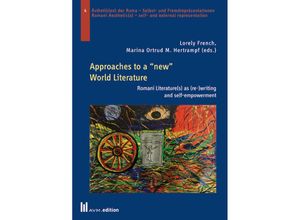The history of written Romani literature is only about 100 years old and thus Romani
literatures are still being defined and consolidated. At least two special features
characterize this young literature: on the one hand it is a multilingual diasporic world
literature that often can be characterized as engaged literature and tries to deconstruct
various age-old stereotypes of the minority. On the other hand female authors play a
strikingly prominent role. Female authors frequently achieve visibility with their texts on the
national book markets. Some authors appear in their own texts as committed feminists and or
human rights activists. For other authors sexuality and gender play a less prominent role in
their works. Additionally women often also play very central roles in texts by male authors.
Therefore this volume aims to explore the different facets of Romani literatures on two
interrelated axes. First the essays explore the status of several diverse works as
transnational world literature. Second the contributions examine the significance of writing
as a form of social engagement and self-empowerment. What emerges is the observation that
mainly women authors have been speaking out and standing up for their rights as women and
Romnya. With contributions from Oksana Marafioti Ana Belén Martín Sevillano Martin Shaw
Kirsten von Hagen Marina Ortrud M. Hertrampf Emilia Kledzik Florian Homann Paola Toninato
Sidonia Bauer Lorely French Viola Parente-Capkov



